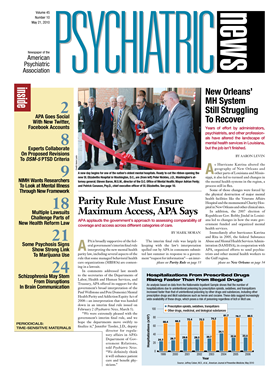More temporary postponements of steep cuts to Medicare's physician pay schedule are likely in coming months, even as some congressional leaders propose longer-term fixes.
A confluence of political realities is likely to result in continued short-term delays of a pending 21 percent cut required under Medicare's often-criticized physician payment formula, instead of a long-term overhaul favored by physicians. One such factor in the near-term outlook for the Medicare fee system is the law (PL 111-157) signed by President Obama in April to postpone the cut until June 1. Prior to that law, the cut was scheduled to take effect on April 1.
Such short-term approaches to the Medicare physician-payment problem sow confusion and concern among clinicians who can't plan for the income they will receive from treating Medicare beneficiaries, said physician advocates.
“Congress must now turn toward solving this problem once and for all through repeal of the broken payment formula that will hurt seniors, military families, and the physicians who care for them,” said AMA President J. James Rohack, M.D., in an April 16 statement. “It is impossible for physicians to continue to care for all seniors when Medicare payments fall so far below the cost of providing care.”
The ongoing game of political brinksmanship over delaying the scheduled cuts versus enacting a permanent overhaul of the reimbursement system has led to a standoff that finds Republicans demanding that Democrats offset with new revenue or spending reductions any fix that eliminates the planned 21 percent cut. House Democrats have largely ignored this demand and passed a bill (HR 3961) last November that would replace Medicare's sustainable growth rate (SGR) formula—a congressionally created cost-control measure that offsets increases in Medicare volume with decreases in physician payments—with a payment system that was designed to automatically keep pace with the costs of running a practice. However, moderate Democrats joined Republicans in the Senate to vote in October 2009 against taking up similar legislation (S 1776), based on concerns that it would use deficit spending to cover its estimated $245 billion 10-year cost.
In recent months, some Democratic leaders such as Rep. Chris Van Hollen (D-Md.) have suggested a five-year “fix” as an alternative to short-term delays in the payment cuts required by the SGR. Such an approach would theoretically give Congress time to devise a comprehensive overhaul of the physician payment system that could garner wide political support. However, a five-year approach is likely to draw Republican opposition because it is not expected to include offsetting spending cuts.
An effort to extend a delay in the physician fee cuts until October 1 was included in a $138 billion package of legislation (HR 4213) that aimed to spur the nation's economy, which the Senate passed on March 10. That legislation, however, has to be reconciled with another version of the same bill that the House passed last December. But once again, progress on those measures is expected to become mired in concerns of fiscal conservatives about offsetting spending cuts. Calls for fiscal prudence will likely become stronger as the November elections approach, and other congressional and White House legislative priorities squeeze out time needed to reconcile the bills that contain the October extension.
Ultimately, continued delays in addressing the strong objections of physicians to a Medicare cost-control system based on cuts in their payments will complicate any solution because such delays will add to the cost of such a fix.
“Fixing the Medicare physician payment problem is essential to the security and stability of Medicare. If the formula is not repealed, the problem will continue to grow,” Rohack said.
Information on the various bills containing physician payment changes can be accessed by searching on the bill number at <http://thomas.loc.gov>. 
